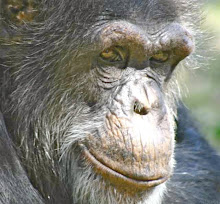The first 3 podcasts of Chris Lydon's trip to India are up at radoopensource.
All I can say is: wow!
When I heard he was starting in Bangalore I was a little puzzled, since I knew he wanted the India beyond the current cliches....
But this is quite a brew of ferment, intellectual richness, and remarkable human beings representing another Bangalore that has always been there but not really availabe from the mainstream US press.
The first one, with a family of social entrepreneurs, points to the likely trajectory of business leadership throughout the world, if you believe, as I do, that the Anglo-American model of financialized capitalism is involuting, and the ecologic crisis will be with us for a century or more. Defining new economic circuits of the flow for value will be at the heart of the challenges and opportunities ahead of us.
The second, with a woman ecologist living in the forest doing ecological restoration and biodiversity work who says many interesting things, such as: " — the human species has come out of this million-year evolution, [having] eye-to-eye contact with snakes, and elephants, and plants." makes me think that the residuum of our preagrarian past which was absorbed and is still being absorbed into the culture of India may have prepared the people of that country best of all to lead us on the central global question of out time: survival of our species without extinction of all others.
The third with a remarkable independent intellectual of forceful, sharply articulated views on the contours of Indian history of the last 60 years. His views are unusually centrist for the Indian political milieu, but highly persuasive. He gets key aspects of the Indian diaspora in the West wrong however. And his dissing of Amartya Sen as a romantic rings true only up to a point -- Sen I think better captures the importance of habits of culture across the millennia --For instance, I think it is no accident that Turkey today is more secular and modern than other Islamic countries once you see how the Ottoman Turks' cosmopolitan policy seeped into the region over centuries. (As I get older I'm more and more impressed with the profoundly conservative, persistent nature of culture across institutions).
Of course I have differences with, criticisms of, and concerns about some of the views of each of the people interviewed. But this stuff really made we want more of all of this. And also offered a hope of a kind I have been lacking lately -- hope in people's ability to envision and realize solutions.
So download 'em for you next trip to the gym or for your commute.
I hope the next batch of interviews are on deck!
Saturday, August 7, 2010
Subscribe to:
Post Comments (Atom)




No comments:
Post a Comment